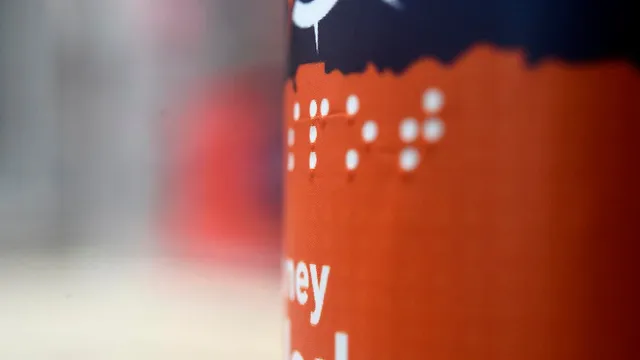
Johns Hopkins students invent braille printer for beer labels
2025-06-27 12:42- In 2024, Johns Hopkins engineering students partnered with Blind Industries & Services of Maryland to create a printer for braille beer labels.
- The printer was specifically designed for ease of use by individuals with low or no vision, utilizing open hardware.
- This invention aims to improve efficiency and accessibility for BISM employees while enhancing product inclusivity.
Express your sentiment!
Insights
In 2024, engineering students at Johns Hopkins University embarked on an innovative project to assist the visually impaired. They collaborated with a nonprofit entity, Blind Industries & Services of Maryland (BISM), which approached them with a specific request: to create a braille printer suitable for beer labels. This initiative aimed to improve accessibility for consumers with visual impairments while supporting local breweries. The printer was designed from the ground up, taking into account the unique requirements associated with braille printing on various materials, specifically those not accommodated by traditional commercial braille printers. The development process began in September 2024, as the students worked diligently to prototype a machine capable of punching braille dots into plastic beer labels. BISM, identified as the largest employer of blind and low-vision workers in Maryland, expressed the need for an accessible and intuitive tool for their employees. The result was not just a printer; it was a device crafted with an open hardware design, allowing users to feel and interact with its components. A significant aspect of the printer's design was its usability by individuals who are blind or have low vision. The students conducted extensive exploration to ensure that those who would be using the printer could operate it effectively. Senior mechanical engineering student Catherine Pollard highlighted the importance of this tactile engagement in the design process. They received positive feedback from those familiar with adaptive technologies, enabling the team to align their work with the daily operations of BISM. In addition to the hardware, the team developed compatible software that enhances communication between the printer, a braille word processor, and graphic design tools utilized in BISM's office environment. As a demonstration of their machine, the students successfully printed 400 braille labels for a beer called Blind Spot, which was crafted by Checkerspot Brewing Company in Baltimore. This brewery partners with BISM for an annual fundraiser aimed at supporting the blind community. The invention of the printer is projected to alleviate the labor-intensive process currently endured by BISM employees, who traditionally use a manual press to create braille labels for their products, thereby enhancing both efficiency and access for visually impaired consumers.
Contexts
Blind Industries & Services of Maryland (BISM) is a key organization dedicated to providing services and employment opportunities for individuals who are blind or visually impaired. Established to empower these individuals, BISM aims to foster independence and productivity through various programs and services. Its mission extends beyond mere employment, focusing on life skills and quality of life enhancements. The organization employs a full-spectrum approach, offering training, job placement services, and access to a range of resources that support its clients' personal and professional development. This commitment not only provides jobs but also encourages a sense of belonging and community among participants, significantly impacting their lives positively. BISM operates multiple lines of business that cater to both military and civilian markets, which include manufacturing, janitorial services, and office supplies. Through these diverse operations, the organization capitalizes on the abilities of its workforce, which consists primarily of individuals with visual impairments. By engaging in various contracts and partnerships, BISM demonstrates the value that its employees bring to the table. These engagements guarantee quality products and services, while also providing essential work experience for those who may struggle to enter the workforce through traditional routes. The importance of BISM's work extends into advocacy and awareness. By actively promoting the capabilities of blind and visually impaired individuals, the organization contributes significantly to dismantling stereotypes and misconceptions surrounding disabilities. It works closely with local and national agencies to develop programs that not only increase awareness but also create networks of support for the visually impaired community. Furthermore, BISM's outreach programs aim to educate the public, employers, and potential clients about the skills and contributions of people who are blind, thereby fostering an inclusive environment in the workplace. In conclusion, Blind Industries & Services of Maryland serves as a vital resource for individuals who are blind or visually impaired, offering them opportunities to thrive professionally and personally. The organization's multifaceted approach not only focuses on employment generation but also champions the cause of inclusivity and empowerment in society. As such, BISM not only plays a crucial role in the lives of its employees but also contributes to a larger societal change, promoting understanding and acceptance of disabilities in the workplace and beyond.